Adventure on Film: Why Hollywood Gets it Wrong
 As I write this, April is just around the corner, and now that Hollywood’s best and brightest studios no longer know how to calculate the beginning of summer, I smell blockbuster season ripening fast on the vine. Just think, in mere weeks, we can all flock to see Star Trek: Into Darkness, Iron Man 3, Wolverine, Oblivion, Pacific Rim, Elysium, and Man of Steel.
As I write this, April is just around the corner, and now that Hollywood’s best and brightest studios no longer know how to calculate the beginning of summer, I smell blockbuster season ripening fast on the vine. Just think, in mere weeks, we can all flock to see Star Trek: Into Darkness, Iron Man 3, Wolverine, Oblivion, Pacific Rim, Elysium, and Man of Steel.
What do nearly all of these movies have in common? I’ll tell you, spoiler-free: the fate of the world will hang in the balance.
Which is why I shall be staying home –– again –– for blockbuster season. If I have learned anything in all my forays into drama, it is this: cinema offers no more boring subject, no greater snoozefest, than global peril.
Heresy, I know.
But I’m right. Here’s why.
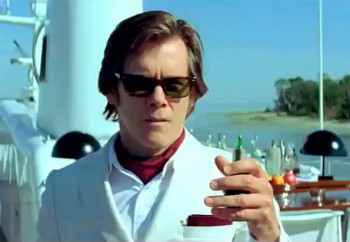 Let’s begin with “real life.” While it may be true that I can, in six (or seven) steps, link my life to that of Kevin Bacon, I live in an essentially closed circle. So does everyone else I know. I have a nuclear family, an extended family, and a similarly defined set of friends, some close, some far-flung. Active networking aside, the only way my circle will truly expand is by somehow modifying two things: my attention span and my sense of compassion.
Let’s begin with “real life.” While it may be true that I can, in six (or seven) steps, link my life to that of Kevin Bacon, I live in an essentially closed circle. So does everyone else I know. I have a nuclear family, an extended family, and a similarly defined set of friends, some close, some far-flung. Active networking aside, the only way my circle will truly expand is by somehow modifying two things: my attention span and my sense of compassion.
Compassion and its synonym, empathy, measure my ability to respond emotionally to the plight of others. Without it, I’m nothing but a sociopath, a heartless opportunist, but with it, I’m a sensitive soul, a caring individual, a man who knows how to offer a hug and remembers to call his mother on her birthday.
The trouble is that empathy weakens as it expands outward in my circle. When a rarely seen Facebook friend breaks her leg, I am sorry, yes –– but how sorry? Do I rush to her side? Do I break down in tears? No. I wish her well –– perhaps I even take the time to send a note –– and then I move on. I cannot and I do not care equally about everyone I know.
I wish that weren’t the case –– I wish I had the time, energy, and capacity to love and cherish everyone equally –– but that simply isn’t realistic in our rough-and-tumble, knockabout existence.
Extrapolate, if you will, into the world at large. Just how much can I possibly care for those (possibly wonderful) people who live on the far side of the planet? It doesn’t signify, or at least doesn’t signify much, that they likely eat different foods, speak an entirely different language, and have never heard of me or anyone I know, including the estimable Mr. Bacon. No, it’s simply a matter of orbital distance: the greater the remove, the more faceless others become. Such is human nature, no matter how much we kick and rail against our (unfortunate) limitations.
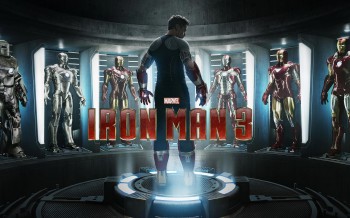 Now along comes this summer’s crop of malevolent, bestial aliens. They start smashing things up in Shanghai, stomping on bridges in San Francisco, or knocking the moon out of orbit. They toss nukes in a few Andean volcanoes, and pretty soon, there’s chaos like we’ve never seen before (except last summer, when much the same thing happened, except the aliens were hairier, not so reptilian, and one had an overbite).
Now along comes this summer’s crop of malevolent, bestial aliens. They start smashing things up in Shanghai, stomping on bridges in San Francisco, or knocking the moon out of orbit. They toss nukes in a few Andean volcanoes, and pretty soon, there’s chaos like we’ve never seen before (except last summer, when much the same thing happened, except the aliens were hairier, not so reptilian, and one had an overbite).
So we lounge in our plush cinema seats, scarfing bad popcorn as the body count soars. Our eyes glaze over and our empathic natures harden to granite, impressed perhaps by the spectacle of it all, but dead at heart. Not only have we seen this all before, but what we see has no meaning. Why? Because what we are witnessing distracts us from the actual story we came to see.
Any successful writer, when dispensing advice to newer scribes, will demand at least this much: be specific. Why? Because readers demand specificity, and in the case of movies, that requires that we audience members be shown in no uncertain terms where to place our focus and where to commit our allegiance. The greatest available tool to control the “gaze” of the audience is not the camera (“the frame”), but the protagonist. The hero. The lovable but possibly frustrating main character. All our hopes and attention must rest on that one person’s (or, occasionally, creature’s) heavily freighted shoulders.
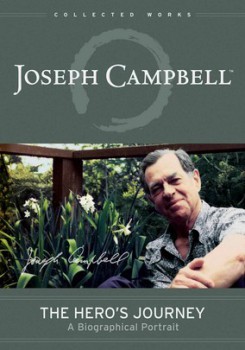 Of course, the unfortunate protagonist encounters troubles and trauma (specific ones, too). He or she succeeds or fails within the (relatively) limited scope of their own experience, and provided we approve of the character––provided we recognize ourselves reflected in that character––we stand and fall with them.
Of course, the unfortunate protagonist encounters troubles and trauma (specific ones, too). He or she succeeds or fails within the (relatively) limited scope of their own experience, and provided we approve of the character––provided we recognize ourselves reflected in that character––we stand and fall with them.
Note how narrow the playing field has become. We’re not rooting for planet Earth. We’re rooting for one gal, guy, or critter. At least in this respect, Highlander had it right: “There can be only one.”
No lesser an impresario than George Lucas rested his story-telling faith in Joseph Campbell and his theories of mythological structure, outlined in great detail in The Hero’s Journey. Note that title well: it’s not called The Journey of a Whole Bunch of Heroes. It’s “hero” singular. The shift to “heroine” for a female protagonist doesn’t signify; it’s the limitation on number that counts, because we humans––the market at which blockbusters and other entertainments are aimed––simply can’t root for everybody.
Think of it in terms of sports. Do you cheer for every team in any given league? No. Where would be the fun in that? Sure, you can opt to appreciate the artistry of great athletes (or Olympians, or ice dancers, or politicians, as you see fit), but you root for one at a time, and the successes and failures, the ups and downs of that one are what make the time you invest exciting.
Yes, sometimes we rally around a group: in Firefly, it’s the crew (and us) against the universe, but even then, without Mal Reynolds as focal point, the rest of the dramatic machinery would fracture.
Yes, sometimes we get a duo, a “buddy picture,” or its prose equivalent. Fritz Lieber pulled it off pretty well with the Gray Mouser and Fafhrd, but that’s rare. Yogi Bear is Boo-Boo’s boss, and Batman is in charge of Robin; no one could possibly believe that the saga of Stormbringer tracks Moonglum and not Elric.
Now that we have the issue of focus clear, let’s get back to hurling boulders at the 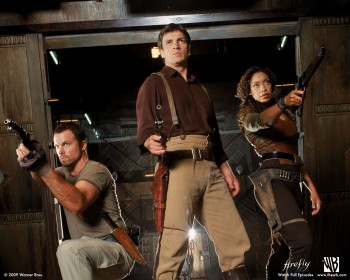 blockbusters. Everyone in the dramatic arts talks with great frequency about stakes. High stakes, major stakes, significant stakes. What matters, and what matters most? But the Game of Stakes is not a contest where body counts and volume determine the winner. Stakes are specific, just like characters, heroes, and goals. The threat of global disaster doesn’t and indeed cannot resonate; we as a species require our stage to be smaller. Hold it in your hand, said Spielberg (and rather famously, too, although he was giving advice on how to summarize a movie). In nearly all of his directorial efforts, Spielberg takes his own advice. Consider E.T. The plight of that squat brown Reese’s fan matters enormously simply because E.T. is lost and lonely and out of his element. Name me someone who can’t empathize with that.
blockbusters. Everyone in the dramatic arts talks with great frequency about stakes. High stakes, major stakes, significant stakes. What matters, and what matters most? But the Game of Stakes is not a contest where body counts and volume determine the winner. Stakes are specific, just like characters, heroes, and goals. The threat of global disaster doesn’t and indeed cannot resonate; we as a species require our stage to be smaller. Hold it in your hand, said Spielberg (and rather famously, too, although he was giving advice on how to summarize a movie). In nearly all of his directorial efforts, Spielberg takes his own advice. Consider E.T. The plight of that squat brown Reese’s fan matters enormously simply because E.T. is lost and lonely and out of his element. Name me someone who can’t empathize with that.
Here’s what’s at stake in five solid, well-respected fantasy tales:
1) In The Wizard of Oz, Dorothy Gale is lost and wants to get back to Kansas.
2) In Navigator: A Medieval Odyssey, young Griffin hopes to ward the Black Death away from his village by mounting a cross atop a church steeple.
3) In The Little Prince, a man wants to fix his airplane in order to escape the desert, while his boy companion, who may or may not be human, wants to protect his only flower from a sheep.
4) In Pinnochio, a wooden puppet wants to be “real.”
5) In Tuck Everlasting, Jesse Tuck wants Winnie Foster to drink from the magical spring, so that she can be immortal, like him –– and Winnie cannot decide what to do.
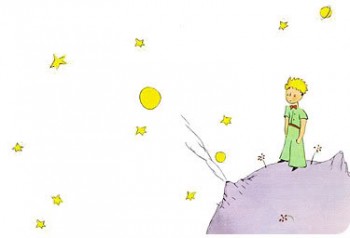 In the above mix of movies and folk-tales, classics, and contemporary works, note the small size and definable nature of each problem and goal. Note also that not one requires, for its impact, a worldwide span. Even the examples that span vast reaches of time and space do not (to borrow a phrase from Melissa Hillman, Artistic Director of Impact Theatre), “privilege” big ideas over basic character. What ultimately links these stories is that they zero in on individuals for whom nothing matters more than their specific goal.
In the above mix of movies and folk-tales, classics, and contemporary works, note the small size and definable nature of each problem and goal. Note also that not one requires, for its impact, a worldwide span. Even the examples that span vast reaches of time and space do not (to borrow a phrase from Melissa Hillman, Artistic Director of Impact Theatre), “privilege” big ideas over basic character. What ultimately links these stories is that they zero in on individuals for whom nothing matters more than their specific goal.
And when that goal is achieved (or lost forever), the story is over.
For myself, I never start any writing project, however modest or monumental, without first 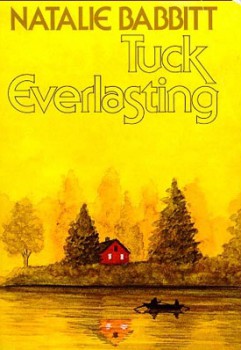 asking, “What is at stake?” How does it matter to my character(s), and how does it resonate with me? (If I don’t care about whatever’s going on, my characters won’t, either.) In the two stories Black Gate has posted so far, “The Trade” and “The Find,” major wheels are turning, huge engines are rumbling, but if I’ve done my job properly as a storyteller, all of those larger machinations provide atmosphere, a backdrop, while my characters –– their needs: their fears, foibles, and idiosyncrasies –– remain always front and center.
asking, “What is at stake?” How does it matter to my character(s), and how does it resonate with me? (If I don’t care about whatever’s going on, my characters won’t, either.) In the two stories Black Gate has posted so far, “The Trade” and “The Find,” major wheels are turning, huge engines are rumbling, but if I’ve done my job properly as a storyteller, all of those larger machinations provide atmosphere, a backdrop, while my characters –– their needs: their fears, foibles, and idiosyncrasies –– remain always front and center.
Please understand, I’m not claiming I’ve succeeded –– that’s for you, gentle reader, to decide –– but that is most certainly the goal, and it will remain the goal in the final installment of the Gemen Trilogy, “The Keystone,” coming soon to these same pages. In both “The Keystone” and The Portal, the novel that grew out of the stories, “the fate of the world” does indeed hang in the balance, but only (and perhaps increasingly) as it impacts the narrative’s heroes: Gemen in “The Keystone” and Rayna in The Portal. Nor do I spend –– no, sorry, waste –– time describing what goes on beyond the immediate orbit of my characters. Think globally, yes, but act locally. Art and politics do on occasion exhibit certain truly wonderful intersections…
And now, back to the silver screen.
Most days, I find it convenient to suppose that major-league, big-budget action film-makers have simply forgotten that the most desperately important stakes can be and often are quite simple. Banal, even. But that’s not it. They haven’t forgotten. They’re simply too cynical to take the time to craft better stories. Instead, they deflect our attention with flash. The fact is, it’s easier to blow up the world (on screen) than it is to fashion a terrific story. And so we get endless re-runs of Independence Day and that stillborn nineteen-fifties clunker, The War of the Worlds. Massive battles of Cosmic (In)Significance. Bling instead of heart.
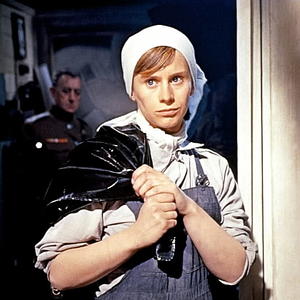 Sure, I like a Robert Downey, Jr. quip as much as the next guy, but this summer? When Iron Man socks it to the bad guys, or when my old mentor James T. Kirk flexes his pecs and wrecks his ship, don’t look for me at the multiplex. I’ll be at home, curled up with The Lives of Others, Pan’s Labyrinth, or maybe Doctor Zhivago. I mean, seriously: is there a more devastating sentence in all of English-language cinema than “He let go of my hand!” from Zhivago? That poor, lost young woman. In the moment she speaks that line, all that matters in the world is that Victor Komarovsky not let go of her hand.
Sure, I like a Robert Downey, Jr. quip as much as the next guy, but this summer? When Iron Man socks it to the bad guys, or when my old mentor James T. Kirk flexes his pecs and wrecks his ship, don’t look for me at the multiplex. I’ll be at home, curled up with The Lives of Others, Pan’s Labyrinth, or maybe Doctor Zhivago. I mean, seriously: is there a more devastating sentence in all of English-language cinema than “He let go of my hand!” from Zhivago? That poor, lost young woman. In the moment she speaks that line, all that matters in the world is that Victor Komarovsky not let go of her hand.
But he did. He does.
That, my friends, is the very definition of high stakes.
Wake up, Hollywood. You can do better.
Mark Rigney’s latest story for Black Gate was “The Find,” which Tangent Online called “reminiscent of the old sword & sorcery classics… A must read.” You can see what all the fuss is about here.
I thought Wolverine was based on the Frank Miller mini-series comics in the mid-80’s. In that series is more about Wolverine just staying alive and getting revenge, no fate of the world hanging in the balance.
I guess Hollywood, yet again has deviated from the book so much as to make completely different story. I never understood that if the original story was a hit, then why change the main part of it?
I admit to possibly lumping Wolverine unfairly with the rest. (Although I will take refuge in having claimed that NEARLY all of the titles I began with would threaten the world at large.) I do hope it IS a Frank Miller-inspired effort, although my sense of Wolverine is mostly taken from eighties Marvel comics, where the X-men seemed to be regularly bent on saving the world from Magneto or whomever. At any rate, and my good will for the clawed one aside, I do trust that my larger point holds water…or at least gives readers something solid with which to grapple.
I agree with much of what you have to say in your article. Nothing is more tiresome than another big budget mega special effect eye candy laden extravaganza (made me tired just writing that). However, I would like to point out that in the Iron Man movies, it’s precisely the personal that makes those movies so enjoyable. Sure, there are lots of special effects, but the heart of those films is the character of Tony Stark, and it’s for him that we go to see those movies. We understand and feel for his struggles, perhaps chide him for his arrogance, and enjoy seeing how he gets himself out of the mess he’s in, caused in no small part by his actions.
I would also add The Avengers to the list of movies with a group of characters that still manages to work. Yeah, the movie does feature a global crisis, but the crisis itself takes up only a small part of the film. It’s the specifics of the main characters and their interactions with each other that make the movie. Joss Whedon does seem to have a talent for handling multiple characters, and he succeeds with The Avengers much as he did with Firefly. It could also be argued that in The Avengers, Tony Stark AKA Iron Man is the glue that holds them all together, much as Mal did in Firefly.
It’s always a relief to find others who are as bored by “high stakes” and the relentless “raising the stakes” as I am. The problem’s pervasive, and not just in film. The literary mega-agent Donald Maass advises novelists to increase tension on every page by having the worst available development happen to the protagonist at every turn. No breaks, no mercy. As much as I can respect an aphorism like “Begin with the blood on the floor,” I’m not crazy about a reading experience that might reasonably be likened to getting dragged by the hair from the first page to the last. (I would bet money that Donald Maass has had no firsthand experience of being dragged by his literal hair.)
Books written according to this formula–a formula derived from Hollywood–do sell well, and some of them have legions of ardent fans. I find these books unreadably boring, despite my efforts to concentrate on what works in them, because I see every plot twist coming about fifteen pages in advance. As soon as the book implies what the worst next event could possibly be, I know that’s what will happen.
Sarah: Regarding the Donald Maass formula, I should maybe write a whole separate piece about jeopardy vs. stakes (or drama). Consider the recent film adaptation of Tin-Tin, in which the whole thing becomes a careening roller-coaster ride. Sure, roller-coasters have their moments, but they are not a useful mechanism for story-telling. For the last twenty minutes of Tin-Tin, I quite literally closed my eyes and waited for it to go away. But I bet Mr. Maass would have loved it: danger at every turn, worst-case scenarios thundering away like Zeuss with a headache.
Svent13: Regarding the Avengers, and Joss Whedon’s light touch, I worry only that we are setting Mr. Whedon on a very high perch primarily because the competition is so poor. Other than that, I’m in general agreement.
Films dealing with comic book heroes now have another minefield to traverse: in order to take themselves seriously, they puff themselves up and become self-important. It practically goes with the territory (The Watchmen was certainly guilty of this, and think of Spider-Man with all those “Great Power” soliloquies). How to skirt that and still retain the costumes and super powers? Not sure…yet.
: )
Moonglum was colonized and marginalized. I’m pretty sure there’s a Kickstarter project to fix that right now.
“Moonglum and the Space Emperor.” Vol. 1.
you make A good point; I never realised how much the global crisis formula has been used, and as much as I like bloodsplosions, boobs and testosterone fuelled macho-men, something with actual character would be nice
[…] Adventure on Film: Why Hollywood gets it Wrong […]